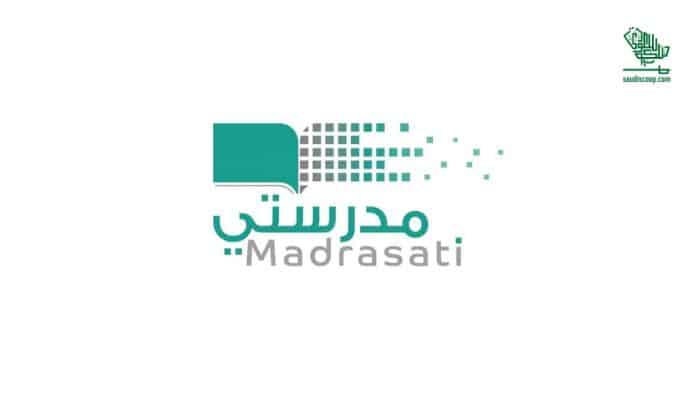Table of Contents
Saudi Arabia’s Vision 2030 is reshaping the nation with a host of socio-economic reforms, unlocking its economic potential. This article explores the fundamental changes, including the possibility of 100% foreign ownership for non-Saudis.
What is the Role of Vision 2030 in New Conditions
Vision 2030 is a pivotal project ushering in a new era of business opportunities in Saudi Arabia. It extends the privilege of 100% ownership to foreign nationals, enabling them to own and operate companies in the Kingdom.
Benefits for Expatriates
Before Vision 2030, many expatriates aspired to establish businesses in Saudi Arabia. Now, thanks to the reforms initiated by HRH King Salman Bin Abdulaziz Al Saud and HRH Crown Prince Muhammad Bin Salman, foreign-owned companies can operate without the need for a local partner.
Benefits for Saudi Arabia
These initiatives have earned Saudi Arabia recognition as one of the top reformers in the G20 by the World Bank. The changes affect four key pillars, enhancing the nation’s business environment and attracting global entrepreneurs, innovators and investors worldwide. Giving investors a chance to access previously untapped opportunities in the large and growing economy.
Major Changes in Business Ownership for Expatriates
In the past, Saudi Arabia mandated a minimum of 25% national ownership in foreign businesses. However, in September 2015, SAGIA, now the Ministry of Investments of Saudi Arabia (MISA), made a groundbreaking announcement. It allowed foreign nationals to hold 100% ownership in retail and wholesale businesses, a significant shift from the previous 75% limit.
In 2016, the KSA Government endorsed the rules and regulations for establishing 100% foreign-owned limited liability companies (LLCs) in the wholesale and retail sectors. This transformational move aimed to attract foreign investors.

Key License Conditions For 100% Foreign Ownership in Saudi LLCs
Let’s dive into the essential license conditions for foreign ownership:
Capital Requirement
Prospective applicants must maintain a minimum cash capital of SAR 30 million (about US$8 million). Remarkably, this capital doesn’t need to remain frozen in a bank account; it can be withdrawn after the deposit is provided to authorities.
Geographic Presence
Foreign nationals should demonstrate operations in at least three regional or international markets. While the precise definition of ‘operations’ remains somewhat unclear, it’s expected to encompass direct trade and legal presence in multiple jurisdictions.
Investment Threshold
Foreign investors are required to commit to an investment of at least SAR 200 million (approximately US$53.33 million). This includes an initial SAR 30 million over the first five years, an increase from the previous SAR 20 million requirement.
Business Structure
Companies can be structured as LLCs or branches of foreign enterprises, a significant shift from previous regulations.
Saudization Commitment
Foreign investors must pledge to meet Saudization (Nitaqat) percentage requirements set by the Ministry of Labor and Social Development (MLSD). They should also provide a plan for Saudi nationals to hold key positions within the first five years, emphasizing senior executive management roles.
Workforce Training
The company must offer annual training to at least 30% of its Saudi employees, a substantial increase from the previous 15% requirement.
Meeting Conditions
Within the initial five years, foreign investors must fulfill at least one of three conditions: manufacturing, R&D investment, or establishing logistics centers and after-sales services. The specifics of these conditions may vary, making clarity essential.
Exemption for Significant Investment
Companies investing SAR 300 million (about US$80 million) within the first five years may be exempt from the preceding conditions.
This comprehensive guide demystifies the license conditions for establishing a 100% foreign-owned LLC company in Saudi Arabia. With this information, foreign investors can confidently navigate the path to success in the Kingdom.
Unlocking 100% Foreign Ownership in KSA: Capital Requirements Unveiled
Are you ready to enter the capital requirements for starting a 100% foreign-owned LLC company in Saudi Arabia? Let’s get started.
The Basics
The Ministry of Investments of Saudi Arabia, previously known as SAGIA, mandates that foreign investors must have a minimum share capital of SAR 500,000. The exciting part? This share capital usually doesn’t need to be locked away in a local bank. Instead, it should be reflected on the company’s balance sheet and used as working capital.
Diverse Capital Requirements
Now, here’s where it gets interesting. Depending on the type of business, MISA prescribes different minimum capital requirements. Let’s break it down:
- Property Investment Sector: SAR 30 million is the threshold you need to cross in this sector.
- Contracting Businesses: It’s SAR 500,000 for contracting businesses, provided you have other asset value alongside.
- Commercial Sector: SAR 30 million is the requirement but with an added twist. You must invest at least SAR 200 million during the first five years to form a 100% foreign-owned LLC company in Saudi.
Building Reserves
Hold on, there’s more. LLCs are also expected to set aside a minimum of 10% of their net profits. This reserve grows until it reaches 30% of the original capital share of the LLC. This financial strategy ensures long-term financial stability and growth.
Understanding the capital requirements is pivotal in establishing a 100% foreign-owned LLC in Saudi Arabia. It’s all about ensuring your business thrives in this dynamic and promising market.
Navigating the Paperwork: Documents for Establishing Your 100% Foreign-Owned LLC Company in KSA
Are you setting up your 100% foreign-owned LLC company in Saudi Arabia? Get your documents in order. Here’s what you’ll need:
- Commercial Registration Certificate (CR): This vital document is issued by the Ministry of Commerce and Industry (MOCI). It’s your official stamp of approval to operate as a business in Saudi Arabia.
- Investment License: To establish a 100% foreign-owned LLC company in KSA, you must secure an investment license from the Ministry of Investments of Saudi Arabia (MISA). This license is your gateway to economic activities in the Kingdom.
- Article of Association (AOA): Your AOA is a critical puzzle. It must be approved by MOCI and signed in the presence of a notary. This document outlines your company’s rules and regulations.
- Local Saudi Bank Account: You’ll need a local Saudi bank account to manage financial transactions. It’s a practical necessity for your day-to-day operations.
- Physical Office Lease and Address: Every business needs a physical presence. Ensure you have a local office lease and a physical address within Saudi Arabia.
- Ministry of Labour and Social Development (MLSD) Certificate: This registration certificate is necessary. It establishes your company’s compliance with labor and social development regulations.
- General Organization of Social Insurance (GOSI) Certificate: GOSI ensures monthly processing of employee salaries. This is a mandatory social insurance requirement.
- Special Licensing: You may require specific licenses from relevant government departments depending on your business activities. For instance, pharmaceutical companies need a Saudi Food and Drug Association (SFDA) license.
These documents are your key to unlocking business doors in Saudi Arabia. Your 100% foreign-owned LLC company can flourish in this dynamic market with the right paperwork.
What to Know About Taxation for Your 100% Foreign-Owned LLC Company in KSA
Taxes are a crucial aspect of running a business, and for your 100% foreign-owned LLC company in Saudi Arabia, it’s no different. Let’s dive into the specifics:
- Corporate Income Tax: Prepare for a 20% corporate income tax. This standard requirement applies to 100% foreign-owned LLC companies in Saudi Arabia.
- Withholding Taxes (WHT): Withholding taxes come into play, and their rates vary:
- 5% for rent
- 15% for royalty
- 20% for management fees
- Value-Added Tax (VAT): Be prepared to handle a standard 15% value-added tax (VAT) on all goods and services. It’s a key component of the financial landscape.
- Income Tax Returns (ITR): The Saudi LLC is responsible for filing income tax returns (ITR) within 120 days from the end of the financial year. It’s essential to note that the KSA tax year commences on 1st January and concludes on 31st December. Please file ITR on time to avoid 1% revenue penalties.
Understanding the tax landscape is pivotal to managing your 100% foreign-owned LLC company in Saudi Arabia. Your business can thrive in this dynamic market with the right knowledge and compliance.
Other Requirements for Establishing Your 100% Foreign-Owned LLC in Saudi Arabia
When it comes to setting up your 100% foreign-owned LLC company in Saudi Arabia, there are a few more nuances you should be aware of. Let’s explore these additional requirements:
- Annual General Meeting (AGM): Your 100% foreign-owned LLC in Saudi Arabia must hold at least one annual general meeting (AGM). This meeting is essential for preparing financial statements, operations reports, and other relevant documents. It should take place within four months of the end of the financial year, and the results must be submitted to the Ministry of Commerce and Industry (MOCI).
- Board of Directors: The decision to have a board of directors is at the company’s discretion. An LLC in Saudi Arabia can be managed by a general manager (GM) or a board of directors. If a board is formed, there’s no need to hold frequent meetings other than the AGM.
- Residency Requirements: The company’s GM must be a Saudi resident with an Iqama. However, other directors don’t necessarily need to fulfill residency or nationality requirements, which may depend on the company’s activities.
- Privacy: There’s no obligation to publicly disclose the identity of the company’s directors and shareholders, offering an extra layer of privacy and confidentiality.
- Shareholder Limits: According to the Saudi New Company Law 2022, an LLC must have at least one shareholder and can have a maximum of 50 shareholders. However, there are no minimum or maximum limits for directors. The company can add shareholders to expand, but only up to 50.
- Holding Company: An LLC can act as a holding company, but its subsidiaries cannot hold shares.
- Limited Liability: Your 100% foreign-owned company should have “limited liability” at the end of its name, derived from its purpose as approved by MOCI.
- Employee Sponsorship: An interesting perk is that your LLC can sponsor its employees for residency in Saudi Arabia, facilitating their presence and work in the Kingdom.
These additional requirements deepen the establishment of your 100% foreign-owned LLC in Saudi Arabia, providing you with the knowledge needed to navigate the intricate business landscape of the Kingdom.
Conclusion
The decree of SAGIA in 2015 marked a significant milestone, allowing the formation of 100% foreign-owned LLC companies in Saudi Arabia. More recently, MISA introduced conditions that further enhance the attractiveness of retail and wholesale business operations within the Kingdom.
However, it’s important to note that the Saudi New Company Law 2022 has rules and conditions that must be met to leverage these latest changes fully.
We suggest contacting qualified professionals and experienced company lawyers in Saudi Arabia with the expertise to provide consultancy for establishing a 100% foreign-owned LLC in Saudi Arabia.

Faisal Malik is an accomplished author and the Chief Editor at Saudi Scoop. With a passion for delivering insightful and engaging content, he leads the editorial team, covering diverse topics that resonate with readers. His expertise in journalism and storytelling ensures high-quality, well-researched articles that inform and inspire.





Hi – this is quiet outdated – SAGIA does not exist anymore and has been replaced by the Ministry of Investment.
Thank you for your feedback. Information has been updated.
I am interested to start a company in Saudi arabia and also recruit a person to market.